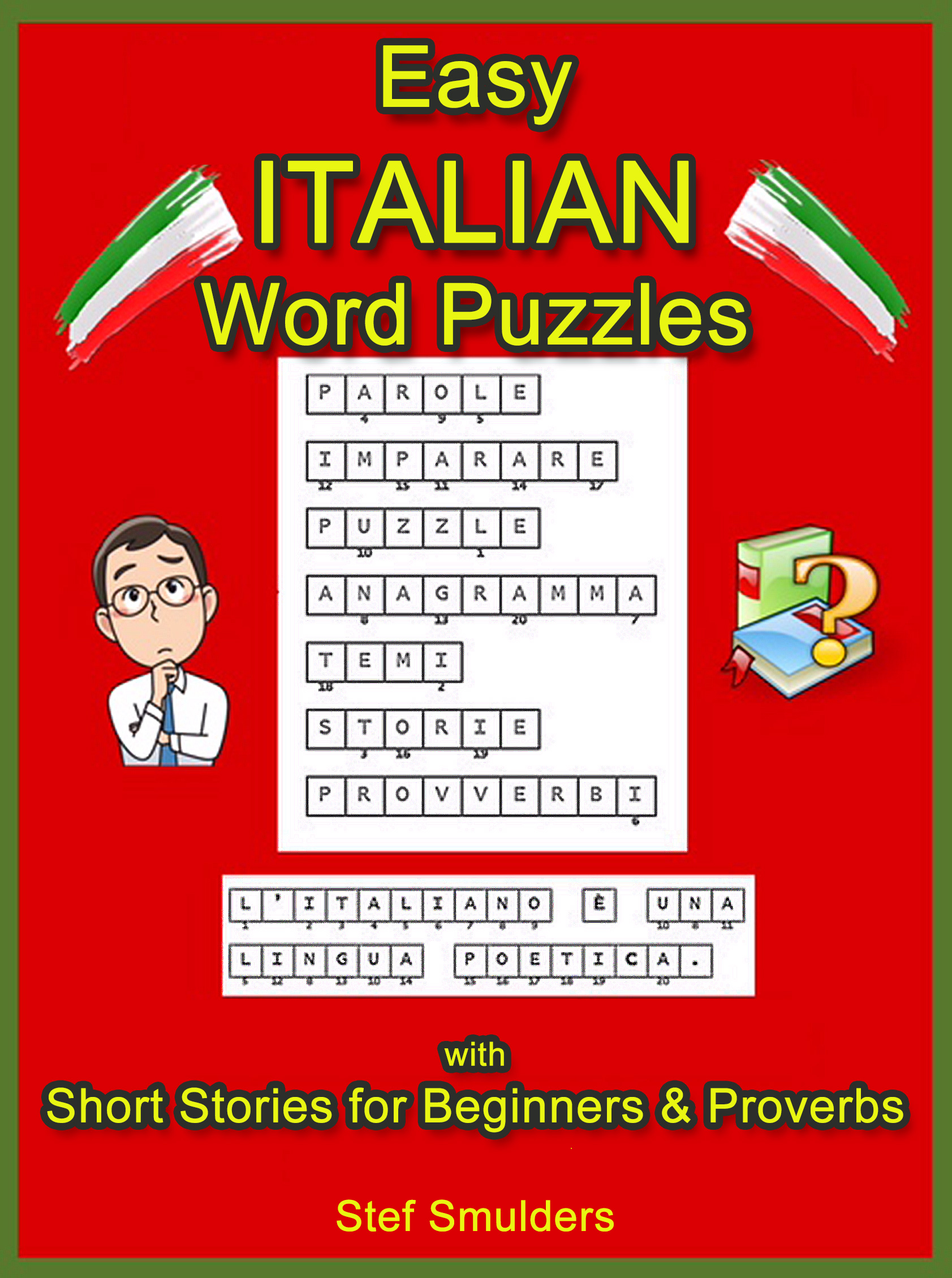
Beyond CIAO
Discover the true meaning of 77 Italian words and phrases
"... a comical, often downright hilarious account."
Reader's Favorite Review
"Smulders' storytelling artistry is wildly entertaining"
Blogcritics/Reader Views
Beyond Ciao - Discover the true meaning of 77 Italian words and phrases
Since I've been living in Italy, 15 years now, I sometimes discover words and phrases that I never heard during my Italian courses, probably because they were too unimportant. Hard grammar was always the focus when learning the language! But often such little things are just very interesting to know and important in everyday life to avoid ridiculous or embarrassing misunderstandings.
In alphabetical order, this book offers a multitude (77) of possible stumbling blocks in learning and using the Italian language, through one or more short stories with anecdotes and cartoons for each letter. Officially, the Italian alphabet has only 21 letters: Except for loan words, the letters J, K, W, X and Y are not used at all. For this reason, I could reasonably have limited myself to just 21 letters. however, not wanting to be lazy, I have added some anecdotes about the letters K, W and X.
Where to buy
Beyond Ciao is available as Paperback, Ebook Kindle at:
Appreciation of important Italy bloggers
"Stef has a fluid writing style, and one literally glides through all the stories. As a result, it reads easily and quickly. Stef observes excellently and reports with a lot of humor about everything that happens. He takes the Italian situations as they are and passes no judgment on them." - Jeanette van de Lindt Bazarow.com
The book reads like a breeze, with short stories that showcase the original blog posts, and can be described as a combination of "Help, I Bought a House in Italy" and the enjoyment of La dolce vita. - Aniek Rooderkerken, Italie Uitgelicht
Excerpts
One of the words you'll hear most often (read not, because it's a typically only useful word in the language) is allora. And that's (of course) mainly because it doesn't mean anything. It's mainly an introductory word that you use when you don't know how to start a conversation. You meet an acquaintance and after a possible greeting (salve, ciao) and the obligatory question come stai? you don't immediately know how to continue (you haven't seen the acquaintance for a while and don't know what he or she is thinking). Then comes salvation in the form of the question "Allora?", which means "And?" Now the ball is in the other person's court, who is also happy because he or she probably had the same problem, but thanks to allora? can talk about themselves without being burdened. Allora, always and everywhere usable as a conversation lubricant!

"Ma è più grande di te?" Roberto wanted to know. Whether Nico's sister Nel was older than him. Nico thought about it, he himself was 1.80 m tall, but Nel was a little shorter, he thought. "No, più piccola," he replied. Roberto didn't understand: "No, I don't mean your younger sister Vera, but what's her name, Nel!" "Sì, sì," my husband confirmed. It was time to intervene, I realized. This linguistic misunderstanding would not be resolved by itself. What Roberto meant was whether Nel was older than Nico, not taller or longer. In Italy, someone who is older is called "taller", più grande. You can also use più anziano to avoid confusion. In Dutch, we are familiar with having a taller or shorter brother, but we don't use the phrase "my brother is taller". Italians are more consistent, as they also use minore and maggiore for a smaller or bigger brother or sister.
Italians use the word alto for a person's height, but it can mean not only tall and high, but also low or deep, profondo! Com'è alto il mare, how deep is the sea. Or: How high are the waves? The first meaning sounds very strange to our ears, and it can be very confusing, as I found out during my now failed study of medieval culture. L'alto medioevo is not the same as the High Middle Ages: Italian scholars use it to refer to the early, deep Middle Ages, while in Dutch it means the late, high, culturally highly developed centuries. And then there is the word alt: sounds like "halt" (in Dutch), but means halt or stop, i.e. "Halt" for normal people without speech impediments who can pronounce the H properly.








